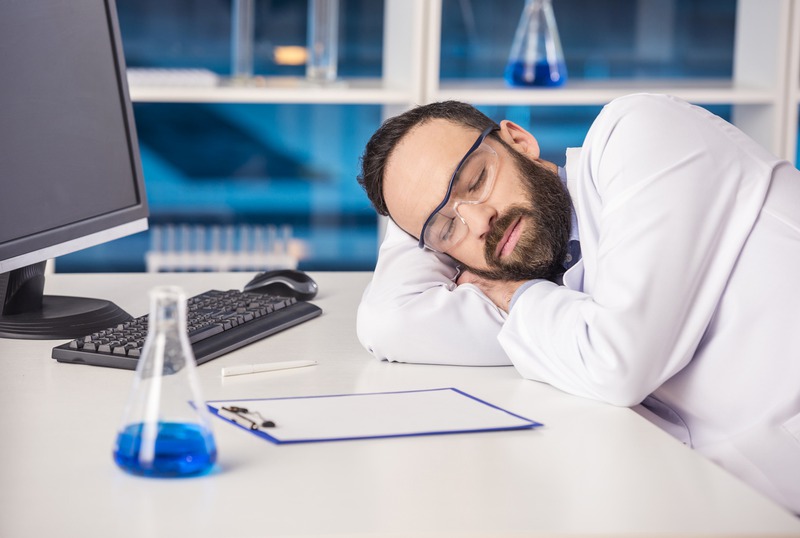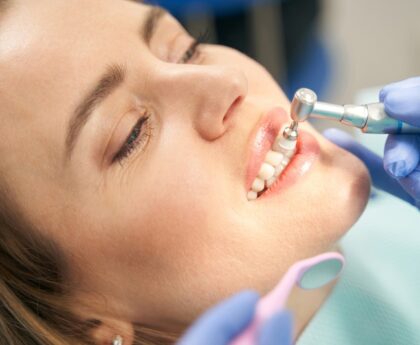Let’s address a common issue that many people face but often overlook – sleep apnea. This sneaky sleep disorder can mess with your sleep and overall health more than you’d think. It’s a health concern that, if left unchecked, can lead to a whole bunch of other troubles. So, when do the occasional snores and snuffles signal that you need to get yourself checked out by a sleep apnea specialist? Stick with me as we walk through the telltale signs and what to do about them.
Identifying the Need for a Specialist
Understanding when to seek professional help can be a game-changer for your sleep quality and health. Seeing a specialist should be on your to-do list if you’re experiencing a combination of these symptoms:
-
Constant fatigue despite getting a full night’s sleep
-
Loud snoring every night that bugs everyone else at home
-
Unexpected waking in the night, gasping for air
-
Choking sensations that jolt you awake
-
Your partner tells you that you occasionally stop breathing while you sleep
-
Headaches every morning like clockwork
-
An irritable mood swinging over you more often than not
-
A noticeable lack of concentration during your daytime hustle
If these sound familiar, it’s probably time to contact a sleep apnea specialist who can assess your situation and discuss your options.
What to Expect at the Sleep Apnea Specialist
So, let’s say you decide to take the leap and visit a sleep apnea specialist. What can you expect? First things first, they’ll likely ask you about your symptoms, your medical history, and any family history of sleep disorders. They may take you through a sleep study known as a polysomnogram to watch your slumber habits and any breathing oddities that occur. With these details, they can pinpoint if you’re dealing with sleep apnea and the severity of it.
Common Treatment Routes
1. CPAP Therapy
One of the go-to solutions is Continuous Positive Airway Pressure (CPAP) therapy. This involves wearing a mask connected to a machine that keeps your airways open with a stream of air. It’s effective, but some find it awkward at first. Adjustments and getting the right mask can make a world of difference. If you’re in the Show-Me State, looking into a BiPAP machine for sleep apnea in Missouri might be beneficial, too. This device is similar to CPAP but adjusts the pressure as you breathe in and out.
2. Sleep Apnea Oral Appliances
Custom-fitted oral devices are a simpler alternative for keeping your airways open. At the same time, you sleep, especially if you’re not keen on using machines like CPAP for conditions like sleep apnea. These devices are tailored to fit your mouth perfectly. They work by adjusting the position of your jaw or tongue, ensuring the airway remains clear to prevent breathing interruptions during the night. For those hesitant about using more complex interventions, these mouthpieces can provide a less invasive solution, often resulting in a better night’s sleep without resorting to machine assistance.
3. Surgical Options
For some, nasal surgery for sleep apnea can be a transformative procedure for the right candidate, particularly for those whose snoring and disrupted sleep are the results of nasal blockages. Not everyone will benefit from this surgical approach, as each person’s anatomy and the underlying cause of their sleep apnea differ. It’s crucial, therefore, that a doctor conducts a thorough evaluation to determine if nasal surgery will effectively address the specific type of sleep apnea a patient has. When nasal blockage is identified as the primary issue, this targeted surgery can significantly improve airflow during sleep, potentially decreasing or eliminating sleep apnea episodes. As such, it is a potential treatment option worth considering for some patients, but only after a careful and detailed medical assessment has it been confirmed as suitable.
Healthy Habits to Complement Treatment
As with many health issues, a combo of professional treatment and healthy lifestyle changes can offer the best outcome. Here are some personal tweaks that can support whatever treatment plan you and your specialist decide on:
-
Lose weight if needed. Extra pounds can put pressure on the airways and make sleep apnea worse.
-
Shrink the booze. Alcohol relaxes throat muscles too much, which can interfere with nighttime breathing.
-
Quit smoking if that’s a habit. It’s linked to swelling in your airways, which is not what you want.
-
Adopt a side sleeping position. Back sleeping can cause your tongue and soft tissues to flop back and block your airway.
-
Stay active during the day. Regular exercise can strengthen your heart and lungs, which helps with sleep apnea.
Remember, these lifestyle changes don’t replace medical treatment but can certainly boost its effectiveness.
If you’re local and considering your treatment choices, seeking out a sleep apnea treatment center in Kansas City, MO, would be your best bet. They can tailor a treatment plan to your specific needs and get you back to dreaming sweetly once more.
Final Thoughts
When you’re constantly tired, snore loudly, or gasp for air in sleep, you could have sleep apnea. It’s a serious condition, but a sleep specialist can help. They might suggest a CPAP machine to keep your airway open or even surgery in some cases. You can also boost your sleep quality by adopting better life habits. Although it might seem bothersome to seek help, good sleep is crucial for your health. If your slumber is poor and you are snoring loudly, seeing an expert can transform your nights into peaceful sleep.





